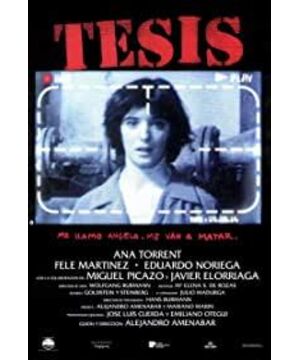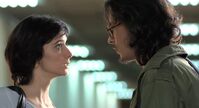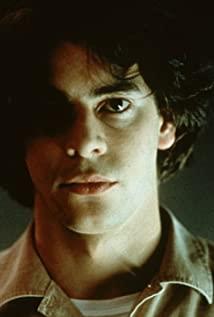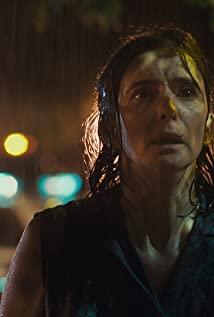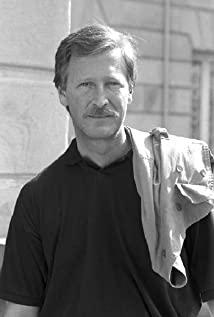Such movies shuttle between entertainment (elements of attractive plots, love, etc.) and reflections on social and personal life experiences. While maintaining good interaction with the audience, they can reveal what we have neglected in our lives. , Or, because of geographical and cultural differences, feelings and expressions that cannot be recognized personally. The brilliance of "Death Papers" lies in the director (i.e. screenwriter) using suspense, a sense of horror, the ambiguous relationship between Angela and Chema and Bosco, and the occasional "joking" and humor to please the audience. Raise the whole film to a proposition that can cause people to calm down and think about (audiovisual) violence.
Yes, like watching almost all mystery films, we will certainly wonder who the real demon is as the plot progresses, but our empathy for the protagonist forces us to worry about whether he(s) will become The sacrifice of truth, that is, what the end of the contest between the angel of light and the demon of violence will be. In other words, this suspense actually points to Angela, or any innocent "informer" involved in the incident. Will they be violent? Will it die because of it? The tension of the film is closely linked to whether the violence succeeds. And this kind of tension turns into our pleasure in the process of watching the movie. It's just that this perceptual domain surrounding violence corresponds to the fictional story of "Death Essay", rather than the content of the videotape involved.
At the beginning of the film, Angela’s subway was forced to stop due to a person’s “sleeping on the rails”. Someone described him (she) as “being broken into two pieces”. Later, it attracted crowds of onlookers. At this time, the camera slowly, or cautiously, swayed towards the running track of the subway from Angela's perspective. At this time, the film audience, Angela, and the camera share the same field of view. When Angela's (ie us) vision is about to touch the corpse that has made us pathologically curious and fearful after passing through the description of the other, Angela was caught by the police. Pulling away, we are also forced to "leave". This was a "failure" wait and see, which did not meet the expectations of "seeing", but the sense of loss it brought was calmed by our fear when we were not watching. Of course, in later flashbacks, we realized that the appearance of the corpse was probably Bosco’s corpse throwing, but even if it was deprived of its narrative significance, we can still use it as a wonderful Amamba’s view of visual violence. The beginning of the video "thesis". In fact, in my personal movie viewing experience, the beginning and end of any movie are always fresh in my memory after years and months. I think the reason may be that they represent the polarities of curiosity and clarity, respectively.
In "Analysis of Dreams", S. Freud assigned an optical model to the special psychological mechanism of dreams: "Let us imagine the machine used for mental production as a complicated microscope or camera." The SONY camera in "Death Papers" is like a nightmare, because in Angela's subconscious, it is a bloody and cruel spokesperson, a criminal evidence, and a scourge that invades his own life following the investigation of disappearance and abuse. In the only dream in the film (which we were clearly told by the director), Bosco sneaked into Angela's room late at night and pierced her neck with a sharp knife while getting close to her. We attributed it to Angela's encounter with Bosco at school. Fear of chasing, on the one hand he sensed Bosco's irresistible attraction to her. When Angela was asked by her supervisor why she wrote a thesis on audiovisual violence, she said: "I don't like violence, it's different." This character has shown her suspicious and worried character on many occasions. What we always feel is Her intuition was frustrated, but when she unknowingly approached the truth, the initial intuition also came back to life. Therefore, it can be said that Angela's final "victory" is both a victory of reason and a victory of initial intuition. The obscure fascination with Bosco is nothing more than a "face" obsession. The real sense of security can only be possessed when she is with Chema. Therefore, when Bosco's "ex" girlfriend confided to her that Chema might be a criminal participant, she still went to the warehouse with Chema to look for the camera, but said to Chema in the dark "I'm afraid you are no longer you" , But this sentence is not so much a fear of Chema himself, as it is a worry and a dreamlike sigh.
The story of the princess and the dwarf appears twice in "Death Papers". Once it was Chema and Angela in the warehouse of the film school. After the power outage, it was completely dark. At this time, Chema lit a match and fumbled with Angela for an escape. In order to relieve Angela's fear, Chema told her such a story. This is a gentle and affectionate confession. The matches are extinguished one by one, and one after another is ignited. The creation of the tunnel space is not only claustrophobic and dangerous, but at the same time, it is set against the flickering firelight and the low voice of Chema. The middle stack is a different kind of dream. The second time was the ending. The two survived a catastrophe, but Chema was admitted to the hospital due to injuries. Angela went to the hospital to see him and gave him a story book about the princess and the dwarf, but Chema found that there was no content in it. People accept and love each other.
From Hitchcock’s foundational work "Psycho" to Kubrick’s "The Shining" and Spanish filmmaker Amamba’s "Death Essay", is there any Some kind of secret connection? The pressure and anxiety of modern people, the hesitation of knowing what to do, the indifference and alienation under the mask, the morbid personality and spectacle social events (even terrorism) deduced by this have become the writing objects of these works, such as Norman Bay The bizarre Oedipus complex and the dual personality derived from it, the terrible creative anxiety of Jack Nicholson as an uninspired writer, etc. are all classic examples in this narrative framework. Isn’t Bosco’s crazy sadistic behavior in "Death Papers" different from the shadow of the ghostly father chasing his son with an axe in "The Shining", and even reminds me of the German writer Suskind (Suskind) who once read it all at once. )'S postmodernist novel "Perfume" (Das Parfum). The ritual of the smell and perfume wizard to scrape the "scent" from the corpse of the girl has an indescribable similarity in motivation to Bosco's behavior. .
All in all, "Death Papers" is a very high-quality movie. Its shooting cycle is very short, and it has a confident attitude. The design and soundtrack of the escape lens, and the presentation of the mixing effect are also worthy of appreciation.
When there was no cinema in my hometown, I had a relationship with Amamba’s film works. It was "The Others" led by Nicole Kidman. Now that I think about it, it's not as good as "Death Papers". The stunningness of a debut novel may be controlled by Hollywood capital, just like Park Chan-wook’s Hollywood debut "Stoker" and his "revenge trilogy" created in South Korea always seem to be cut off. A certain creative impulse comes from the instinct of an artist full of curiosity and courage.
Four or five years have passed from "Island Cry" to "Death Thesis". When watching "Island Cry", I used my cumbersome desktop computer, covering my eyes from time to time, and looking secretly through my fingers. Screen; now I watch "Death Papers" with a group of movie fans in the archive, but I feel excited and happy, because here we stare at the big screen, share the fear of the host, and experience the thrill of adventure and the charm of the world of light and shadow. I read the sentence "History is today’s history, and the future is today’s future" last night. The movie has been witnessing time with me. If my whole life is an Odyssey in the sea of time, then the movie is my meditation. The boat. Many things can change, but the touch, encouragement and sadness brought to me by the world of light and shadow will always cling to the wall of my heart like a lush ivy.
View more about Thesis reviews


